Simcha Dimant papers
The Simcha Dimant papers relate to the Holocaust and immediate post-war experiences of Simcha Dimant, a Polish Jew. The papers contain identification documents including a provisional identification card issued by the Allied Expeditionary Forces in Buchenwald concentration camp, April 1945; a Haftlings-Personal-Karte (Prisoners-Personal-Card); a Mandat-Karte (Mandate Card), July 1945; and a fragment of a Military Government Temporary Registration form. The papers also include travel documents relating to Dimant’s work for the Allied Expeditionary Forces. These documents include a D.P. Index Card, G00404254, two-sided pre-printed card issed by the Allied Expeditionary Forces with "Keep this card at all times to assist your safe return home," written on the reverse side, as well as other travel documents issued by the Allied Expeditionary Force offices, valid from July 23-29, 1945. The papers also include a letter, written by Simcha Dimant to Hela and Karl Wargon (Tonia Dimant’s sister and her husband), May, 1943. The letter detailed the fate of various family members following the liquidation of the Częstochowa ghetto. The letter was censored with a false approval stamp and mailed illegitimately by a German officer who was Simcha Dimant's supervisor at a military factory near Częstochowa, Poland. The Simcha Dimant papers include a photograph of a Simcha Dimant, undated, and a photograph of an unidentified couple, 1936. A 1936 wedding invitation for Toni Wagonówny (Toni Wargon) and Sewkiem Dymanten (Simcha Dimant) is also included in the papers. Symcho Dymant was born on February 18, 1913, in Warsaw, Poland, to a Jewish couple, Aharon and Keila Wislicki Dymant. He had three siblings: Alexander, Hindi, and another brother. Aharon, a watchmaker, died in 1915 and Keila died when Symcho was young. He was raised by his grandmother in Sosnowiec. Symcho became a carpenter and settled in Czestochowa. On August 23, 1936, he married Tonia Wargon. They had a son, Aaron, in September 1937. On September 1, 1939, Germany invaded Poland. They occupied Czestochowa on September 3. Symcho and his family were forcibly moved into the ghetto after it was established on April 9, 1941. Symcho was involved in the underground resistance in the ghetto. Symcho escaped the ghetto. Because he spoke German, he was able to get a civilian job under an assumed identity as a non-Jewish Polish person in a German military installation near the town. In September 1942, the Germans decided to destroy the ghetto. On September 22, Symcho’s mother-in-law was shot in the head by Nazi officials. Symcho’s wife Tonia, 4 year old son Aaron, and all of his relatives were sent to Treblinka killing center. In May 1943, a sympathetic German officer helped Symcho send his sister-in-law, Hela Wargon and her husband Karl, in New York a letter explaining the deportation of the family. The SS discovered that Symcho was Jewish. He was also charged with political crimes and deported to Buchenwald concentration camp in Germany. He arrived on December 24, 1944, and was assigned prisoner number 15349. He was a slave laborer in a nearby military factory. He was active in resistance in the camp. On April 11, 1945, the camp was liberated by American troops. Just after the war, Symcho worked for the Allied Expeditionary Force, traveling through Germany gathering information on refugees from concentration camp. Symcho moved to Fulda displaced persons camp by the summer. He joined Kibbutz Buchenwald, which was established on a farm by sixteen camp survivors. He met Ita Rozenczwajg (1918-2010). She had survived by living under an assumed identity as a non-Jewish Polish person and was sent to Germany as a Polish forced laborer in 1943. There were two rabbis associated with the group. One went to the British embassy in Paris to get certificates for emigration to Palestine. On September 8, 1945, eighty young men and women from the Kibbutz arrived in Haifa, one of the first large survivor's group to reach Palestine. Symcho changed his name to Simcha Dimant. In 1946, Simcha and Ita married. The couple had two sons. Simcha, age 70, died in 1983.
- EHRI
- Archief
- us-005578-irn677617
- Częstochowa (Poland)
- Wargon, Karl.
- Identification documents.
Bij bronnen vindt u soms teksten met termen die we tegenwoordig niet meer zouden gebruiken, omdat ze als kwetsend of uitsluitend worden ervaren.Lees meer




